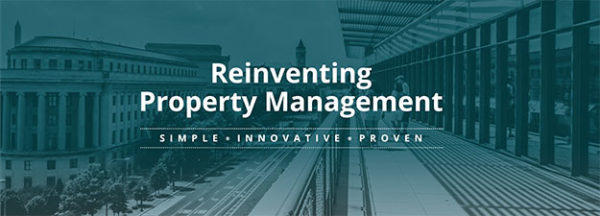This biweekly sponsored column is written by the experts at Gordon James Realty, a local property management firm that specializes in residential real estate, commercial real estate and homeowner associations. Please submit any questions in the comments section or via email.
On the surface, becoming a landlord seems like a simple decision.
You choose a property, invest just enough to turn a profit and choose a credit-worthy tenant. The rent is paid on time, nothing ever breaks, and your monthly rental income is sufficient to cover your mortgage (if you have one) and monthly maintenance expenses.
Unfortunately, things don’t really work that way and even a credit-worthy tenant can cause cash flow issues. Nothing ever works perfectly all the time, and you may operate at a loss until you have sufficient equity in the property.
If you’re renting a property that’s thousands of miles away from your location, you also have to worry about how well the tenants are taking care of things since you’re not physically present.
While you may be able to hire an individual to take care of your property, without the proper experience, resources and knowledge you may be wasting precious dollars.
Do you really need a property manager? It’s up to you to decide, but here are some of the issues you may face if you choose the DIY route:
1. Legal
Leasing agreements are complicated. And while you can easily pick one up at the nearest Staples, these generic agreements may not be legally sufficient in the area you choose to invest in. Because DC is not a state, the agreement may need different language and might not hold up in court.
Though you can hire an attorney to draft one for you, when it comes to enforcing the agreement you’re left to your own devices. If this is your first time as a landlord, you may not know when it’s appropriate to secure legal counsel to help before things get out of hand.
2. Physical
This is particularly difficult if you are a long-distance landlord. You need to conduct inspections on both the outside and inside of the property on a periodic basis. But you cannot waltz in anytime you choose and depending on the terms of your leasing agreement, you may not be able to go in without prior notice.
If the exterior of your property is showing signs of neglect, chances are the inside of the property is as well. A good property manager can drive by a property and make an accurate assessment.
If the grass isn’t mowed and the exterior of the home shows signs of recent damage due to negligence, vandalism or weather, it’s probably time for an interior inspection.
3. Security
If the doors and windows of your property are routinely being left open in a high-crime area, your tenants are putting your home at risk for mistreatment.
In addition, there are times when locks must be changed and windows must be secured. As a landlord, it’s your responsibility to protect your investment or you may be legally liable for anything that results from a home that’s not secure.
4. Lack of resources
Even new construction will have issues. Every property is subject to plumbing problems, weather damage and the like. These things will likely need to be addressed immediately, or else you will incur serious expenses later on down the road.
A good property management company can anticipate regular maintenance issues and give projections as to what your costs will be.
As a landlord, it’s critical from both a legal and investment standpoint that these matters are taken care of right away. You may find yourself in the situation where you don’t have the cash to cover these expenses immediately, but a property management company has a much greater pool of resources and stable cash flow to handle problematic situations quickly.
5. Lack of time
Depending on the number of properties you choose to invest in, property management can be a full-time job. If you choose to manage several properties on top of working full-time, you will find yourself unable to meet your family obligations and other responsibilities.
If this is your first rental property, your inexperience means that it will take you much longer to do tasks than a certified property manager. If you have the time to invest in educating yourself, this won’t be a problem. But many new landlords are quickly overwhelmed by the amount of time and energy it takes to manage their properties.
Wrapping It Up
Though managing a property yourself may seem like a good way to cut down on your expenses, it can hurt your bottom line in the long run.
If you have the time, resources and experience to manage your own properties this is a moot point. But if you find yourself struggling to turn a profit on your rental properties, you might want to consider handing the reins over to a skilled property manager who knows how to take care of things.
It will save you time, frustration and possibly put a little cash back in your pocket.


